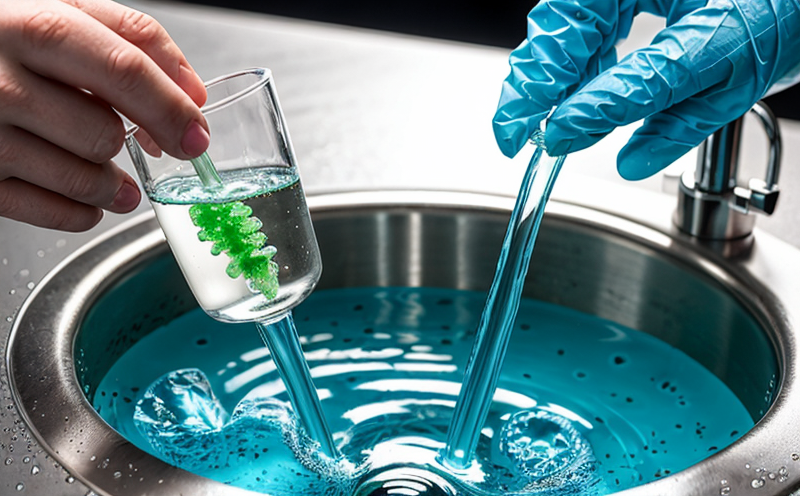ISO 11731 Legionella Detection Test in Water
The ISO 11731 Legionella detection test is a critical tool used to identify the presence of Legionella pneumophila, a bacterium that can cause Legionnaires' disease—a severe form of pneumonia. This standard has become essential for water system operators and those responsible for maintaining public health in various settings including hospitals, hotels, and office buildings.
The primary focus of this test is to ensure compliance with international standards and regulations aimed at minimizing the risk of infection from Legionella in potable water systems. The procedure involves collecting water samples from different points within a facility’s plumbing system and then analyzing them using culture-based methods or molecular techniques as specified by ISO 11731.
Water treatment facilities must adhere to strict protocols to maintain safe drinking water quality, which includes regular monitoring for Legionella contamination. By implementing the ISO 11731 method, laboratories can provide reliable results that help facility managers make informed decisions about disinfection practices and other necessary control measures.
The process typically begins by collecting approximately 50 ml of water from multiple points within a given area. These samples are then transported to the laboratory where they undergo preparation steps such as dilution or inoculation onto appropriate media, depending on whether culture-based methods are being used. If molecular detection is preferred, DNA extraction followed by real-time PCR amplification and quantification of Legionella-specific sequences would follow.
Results from these analyses indicate the concentration level of Legionella bacteria present in the sample, allowing for targeted interventions to reduce levels below thresholds deemed safe by public health authorities. Compliance with this testing procedure ensures that facilities meet regulatory requirements set forth by organizations like OSHA (Occupational Safety and Health Administration) or other relevant governmental bodies.
| Location Type | Sample Point |
|---|---|
| Hospitals | Hot water taps, showers, and cooling towers |
| Office Buildings | Distributors, faucets, and ice machines |
The importance of accurate sampling cannot be overstated; improper collection methods can lead to erroneous results. Therefore, proper training is provided for personnel tasked with gathering samples from various locations within a facility.
Once analyzed, the data generated by the ISO 11731 procedure plays an integral role in determining effective strategies to eliminate or control Legionella growth. This information may be used to inform decisions regarding maintenance schedules, water treatment processes, and cleaning protocols designed specifically for preventing future outbreaks of Legionnaires' disease.
| Outcome | Significance |
|---|---|
| No detection of Legionella | Indicates low risk of infection; no immediate action required. |
| Detection within acceptable limits | May require enhanced monitoring or minor adjustments to current practices. |
| Excessive detection levels | Necessitates urgent intervention including increased disinfection efforts and thorough cleaning procedures. |
Industry Applications
- Hospitals: Ensure patient safety by reducing the risk of nosocomial infections caused by Legionella bacteria.
- Hotels and Resorts: Maintain guest comfort while adhering to strict health codes.
- Office Buildings: Protect employees from potential exposure to harmful pathogens.
Eurolab Advantages
Our commitment to excellence in microbiological water testing sets us apart from competitors. With years of experience and state-of-the-art facilities, Eurolab offers unparalleled expertise when it comes to ISO 11731 compliance.
We employ highly trained professionals who are certified according to international standards, ensuring accurate results every time. Our advanced laboratories equipped with cutting-edge technology allow for precise analysis even under challenging conditions.
Additionally, our team works closely with clients throughout the entire testing process—from sample collection guidance to final interpretation of results—ensuring that all aspects of compliance are met efficiently and effectively. By choosing Eurolab for your Legionella detection needs, you can rest assured knowing that we will provide top-notch service tailored specifically to your unique requirements.
Competitive Advantage and Market Impact
- Leader in accurate, reliable ISO 11731 testing across various sectors.
- Proven track record of successful partnerships with top-tier organizations worldwide.
- Dedication to continuous improvement through ongoing research and development.





